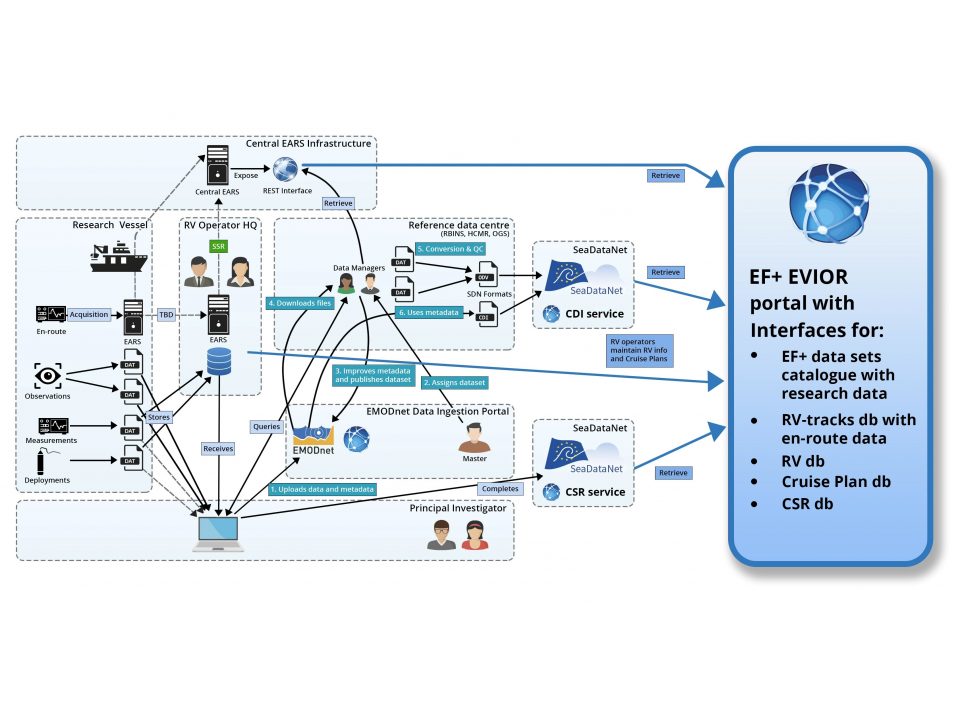Register to the e-conference and attend the oral presentation of Thomas Vandenberghe, Royal Belgian Institute for Natural Sciences, Brussels, Belgium
Data management for European fleet of research vessels in EUROFLEETS+
The presenter:
Thomas Vandenberghe, Royal Belgian Institute for Natural Sciences, Brussels, Belgium
Additional authors:
- Susana Diez Tagarro, Consejo Superior de Investigaciones CientíficasBarcelona, Spain
- Dick Schaap, Marine Information Service 'MARIS' BV, Nootdorp, Netherlands
Keywords:
Bathymetry, Oceanography, Data science, big data, data management, Infrastructures, observatory, observation platforms
ABSTRACTS:
EUROFLEETS+ (EF+) EU H2020 project facilitates free of charge access to 27 research vessels, AUVs and ROVs from European and international partners by transnational access (TA) calls.
EF+ adopted a Data Policy making EF+ cruise data findable, accessible, interoperable and reusable (FAIR). Data management (DM) is deployed in synergy with SeaDataNet, European network of NODCs. The DM strategy is to ensure metadata and data of cruises become available for dissemination in major European and global marine data exchange systems.
To achieve, research teams are required to formulate cruise DM plans, and use components designed for deploying the EF+ DM strategy:
- Equip RVs with a shipboard system (EARS) to gather and transfer metadata and data as acquired, both by automatic systems and manual entries;
- Assign DM experts (NODCs) to assist principal investigators and vessel operators, before, during, and after the cruises;
- Validate and archive all gathered metadata and data at the NODCs for long term stewardship, and wider distribution, using SeaDataNet for exchange and publishing at several European and international portals, such as CMEMS, EMODnet, EurOBIS, GEOSS, and IOC-IODE portals and the EF+ EVIOR portal.
Distinction in ‘en-route’ data from fixed sensors and ‘manual’ data from human operations, requiring post-processing, e.g. analysing samples. EARS gathers ‘en-route data’ for regular transfer and publishing at EF+ portal in a dynamic vessel tracking interface, using SWE techniques. While ‘manual’ data will be transferred by PIs to NODCs using EMODnet Ingestion.
More information about this session:
https://www.seatechweek.eu/Detailed-programme-794-0-0-0.html#PSINFRA







